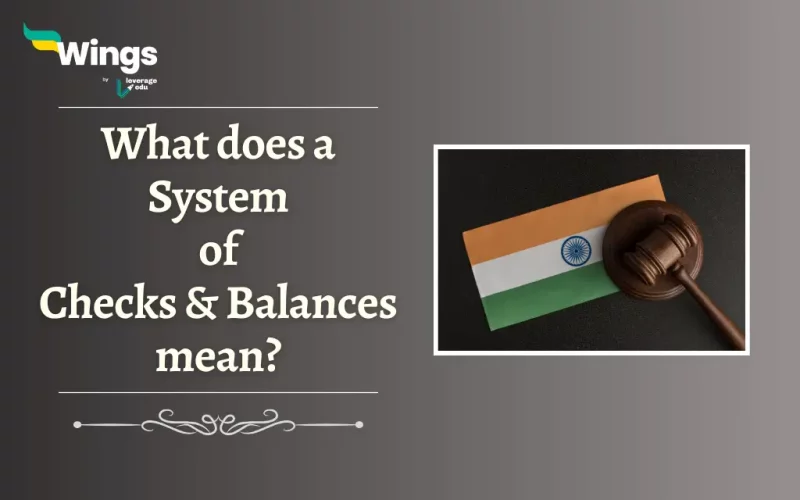The meaning of a System of Checks and Balances is the horizontal distribution of power within the three branches of our government, which are the Legislature, Judiciary, and Executive. Furthermore, in most layman’s language, it means that all three branches have their sets of powers which allows each one of them to practice authority over the other ones. Additionally, the sole motto of overlapping the powers of all these branches is to guarantee that none of the government branches has too much power to dismiss others.
Also Read: Notes on Separation of Powers in a Democracy
Principle of Checks and Balances
Table of Contents [show]
The Principle of Checks and Balances is a protection against tyranny in a particular government.
- Each branch has the authority to check the others.
- For instance, the Legislature passes laws, but the Executive (through veto power) and Judiciary (through Judicial review) can limit those laws.
- Moreover, this system guarantees no single branch holds absolute control.
- Thus preventing abuse of power and promoting cooperation for effective governance.
Also Read: The Basic Structure Doctrine: Safeguarding Constitutional Integrity
Factors that Weaken the Principle of Checks and Balance
Well! Given are the factors that should be considered to undermine the Principle of checks and balances.
- Blurry lines between branches: When the boundaries between the legislative, executive, and judicial branches are unclear, it can lead to conflicts and make it difficult for each branch to effectively check the others.
- Power creep in the executive branch: If too much power accumulates in the hands of the executive (like the President or Prime Minister), it can stifle accountability.
- An overstepping judiciary: When the judiciary involves itself excessively in the affairs of the legislature or executive, it can disrupt the balance of power.
- Legislative imbalance: If one party has too much control in the legislature, it can weaken its ability to scrutinize the executive branch.
- Sidelining accountability measures: When mechanisms designed to hold the executive branch accountable, like legislative committees, are ignored or bypassed, it undermines checks and balances.
Related Blogs
I hope this helps! Did you like learning about What does a System of Checks and Balances mean? Keep reading our blogs to learn more about the basic concepts of Maths!
 One app for all your study abroad needs
One app for all your study abroad needs















 45,000+ students trusted us with their dreams. Take the first step today!
45,000+ students trusted us with their dreams. Take the first step today!
